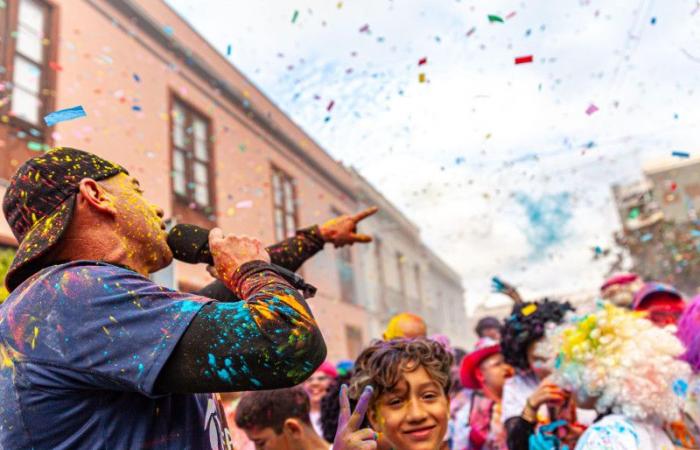
The municipality of The Realejosnorth of Tenerife, proudly holds a record that has placed it in the Guinness book of records: It is the most festive people in Spain. With More than 80 parties a yearhis calendar has become a real marathon of traditions, pilgrimages, processions and verbenas. The most curious thing is that it is not the City Council who takes care of all this program, but that it is the neighbors themselves who organize, finance and give life to the celebrations.
A tradition that does not rest
“In the realejos we celebrate – one up or one down – about 80 festivities a year,” explains its mayor, Adolfo González, in an interview in the program Putting the streets of Cope. “Each is organized by the neighborhoods of the municipality. The City Council collaborates in some, but most are promoted by neighborhood commissions.” And so, month after month, the Canarian people become a hotbed of cultural, religious and popular activity.
The parties begin in January with the first pilgrimage of the year in the Canary Islands and lengthen until December with Christmas celebrations. However, it is between July and September when the intensity triggers. “In summer there can be up to four simultaneous parties in the same week,” says the mayor. Something that makes the municipality an attractive destination for those who seek tourism of authentic experiences. The cross, gunpowder and devotion
The cross, gunpowder and devotion
Las Cruces and May fires partiesdeclared of National tourist Interestthey are one of the main claims of the municipality. They are held every May 3 with which many consider the largest pyrotechnic exhibition in the Canary Islands and one of the most spectacular in Europe. That day, the realejos pays tribute to their more than 300 cruces Distributed by its geography, from the sea to the Cañadas del Teide.
Alamy Stock Photo
“The cross is a very special symbol for us,” says González. But religious fervor is not at odds with popular joy. “Although many of our parties have a liturgical character, popular acts are the most prominent,” he adds. The celebrations also include the pilgrimage of San Isidro Labrador, unique in the Canary Islands in which folk groups of the eight islands participate, or the feast of the Virgen del Carmen in July, organized directly by the City Council.
The key to this festive success is not only in tradition, but also in citizen involvement. “The holidays are paid by neighbors. Each neighborhood, including individual streets, organize their own festivities. It is a lot of economy, a lot of work … and a lot of tourist,” admits the councilor. Because yes, the party is also an economic engine. Local restoration and trade greatly benefit from the transfer of visitors. “We are talking about several thousand euros invested for each party commission, which stay in the neighborhood itself,” he says.
With almost 40,000 inhabitants, the town has managed to turn its calendar into an identity sign. It is not uncommon for a person to participate in several parties throughout the year, even if they are not from their own neighborhood. “In the end, we find friends and family. And it doesn’t matter to which area each belongs, because the important thing is to share,” explains the mayor.
Visiting the Realejos is not just an opportunity to know their history or their natural environment, it is also to discover how tradition, faith and coexistence can fill an entire year of music, fireworks and celebration.

Alamy Stock Photo
Summer cinema at the beach of Socorro (the realejos)
Beyond being a tourist claim, this municipality of Tenerife represents a way of life that resists disappearing. In an increasingly accelerated world, The popular party becomes an identity shelter and community. As Adolfo González says, “it is a showcase of who we are and what we offer.”





